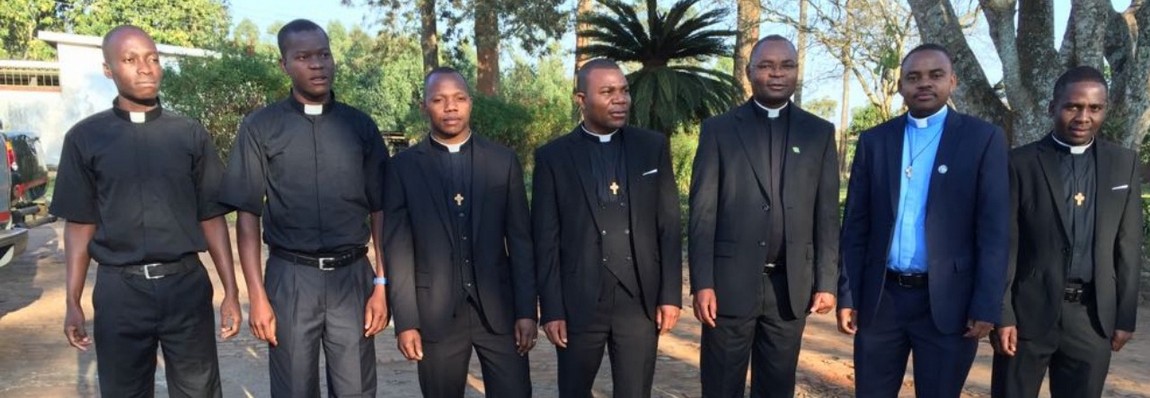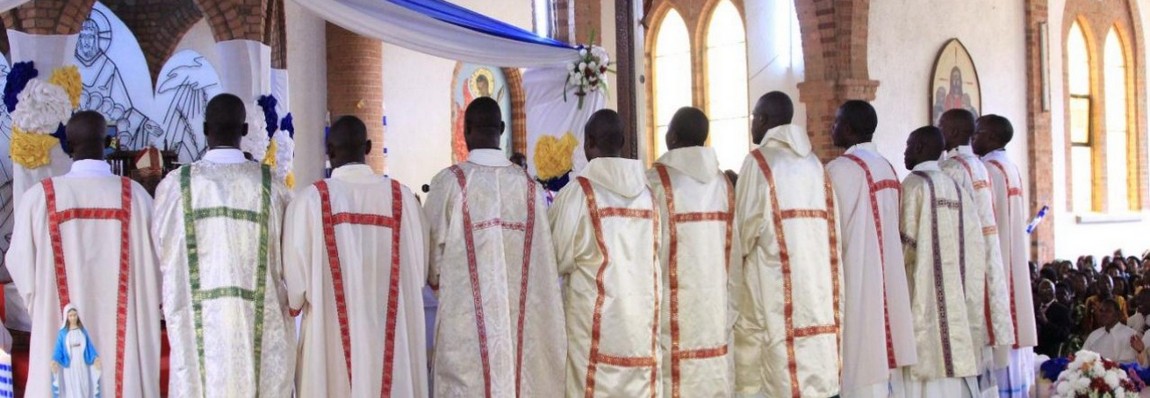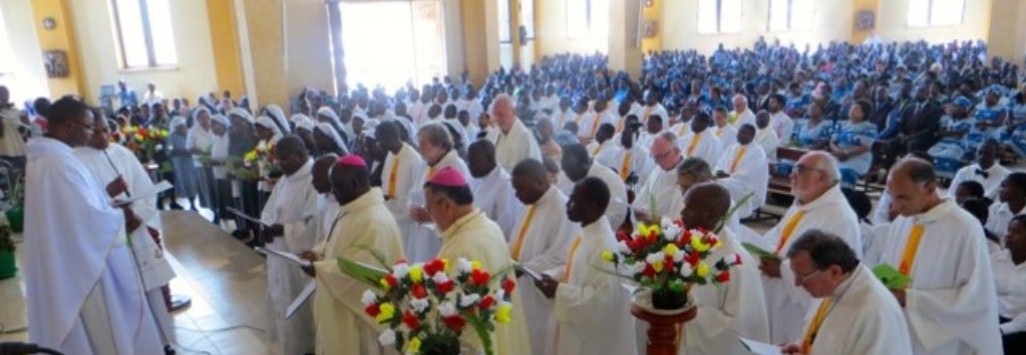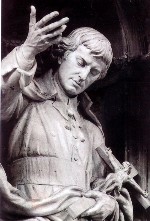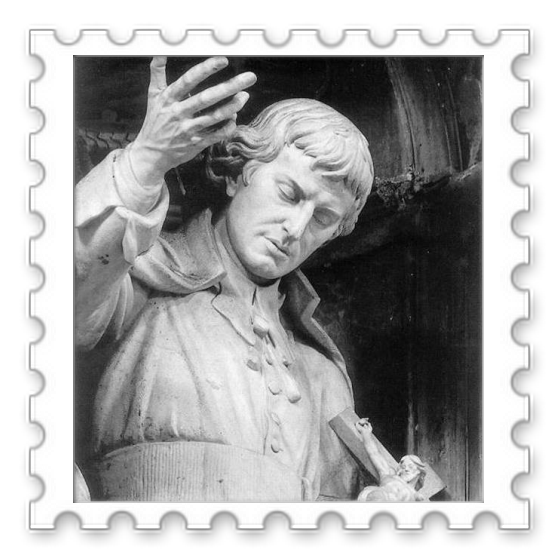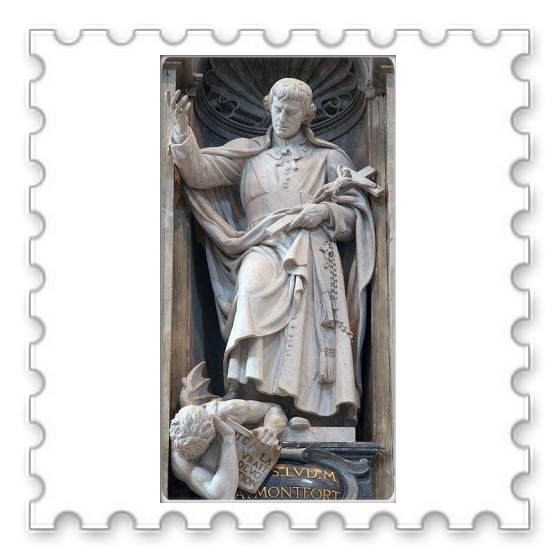Our Founder
About Us
Early Years
St. Louis de Montfort was born on January 1673 in a small hamlet called Montfort. His parents named him ‘Louis’. His mother was a pious woman who worked hard to educate and bring up the large family. From his early age he was devoted to Blessed Virgin Mary. Montfort’s devotion to the Mother of Lord Jesus was an integral part of his spiritual life. At the age of eleven he went to Rennes to study in a Jesuit Institution. After 8 years of study, he left for Paris to study at St. Sulpice seminary to become a priest. On his way he crossed a bridge called ‘Cesson’ and took a radical decision never to be attached to any worldly possessions or material goods and to live a life of total dependence to God. He gave away everything to the poor and even exchanged his clothes with a beggar. He felt that ‘God alone’ was his Father and Blessed Virgin Mary, his Mother. He prepared well for his future ministry as a priest by reading most of the books in the library and spending a lot of time in prayer.
Priestly Ministry
Louis Marie's first appointment as a priest was to the Community of Saint-Clément in Nantes. As his letters of this period show, however, he felt frustrated there owing to the lack of opportunity to preach as he felt he was called to do. He considered various options, even that of becoming a hermit, but the conviction that he was called to "preach missions to the poor" increased, and he began to think, even at this early stage, of founding "a small company of priests" to do this work under the banner of the Blessed Virgin. After a few months, he was persuaded to go to Poitiers by Mme. de Montespan (the repentant former mistress of King Louis XIV), whom he had first met in Paris. There he agreed, although somewhat reluctantly (since he did not think he was called to "shut himself away in a poor-house") to become chaplain to the inmates of what was known as the "Hôpital Général" - a sort of work-house where the very poor were incarcerated in order to keep them off the streets. Here Louis Marie set about serving these poor people with all the enthusiasm which he normally reserved for such as these. In the course of his reforming efforts, he seems to have fallen foul of the authorities at the poor-house, and around Easter 1703 he left for Paris.
The next year was to be a particularly painful one for him. He first went to join the team of chaplains at the Salpétrière, the first "Hôpital Général" set up by St. Vincent de Paul; but after a few weeks he was asked to leave (we do not know why). This was the beginning of a period when almost all his old friends and acquaintances rejected him. As with many other saints, it seems that his extraordinary sanctity challenged those less inclined to follow the gospel literally, and they accused him of pride and self-deception. He spent almost a year living in a very poor lodging in the Rue du Pot de Fer, without friends and without any definite ministry. This gave him the chance, however, to develop his thoughts on Jesus Christ, as the manifestation of the Wisdom of God, and he probably wrote his book "The Love of Eternal Wisdom" at this time.
The poor of Poitiers, however, had not rejected him, and they wrote to ask him to return to them. With the agreement of the Bishop, he returned to Poitiers to become the Director of the "Hôpital Général", and once again set about his reforms. He was helped in this by a young woman, Marie-Louise Trichet, who felt called to be a religious and to dedicate herself to the service of the poor. Louis Marie persuaded her to come to work with him at the "Hôpital Général", where later she was joined by another young woman, Catherine Brunet. These two, after many years of waiting, were to become the first members of the Daughters of Wisdom.
Louis Marie still continued to attract opposition by his reforms, and after several more months, he was persuaded by the Bishop and Marie Louis Trichet to leave the Hôpital for the second time. He began preaching missions in and around Poitiers, and probably felt that at last he was doing the work God had called him to do. Among the first missions was one in the very poor suburb of Montbernage, where he put into practice many of the features of his later missions: the call to a renewal of Baptismal Vows, the processions and lively liturgies which attracted the people who had often been neglected in the past. But his success seems to have aroused the jealousy of some who had the ear of the Bishop, and at the beginning of Lent 1706, he was forbidden to preach any more missions in the Diocese of Poitiers.
What was he to do now? He had become more and more convinced that he was called to preach missions, yet here was the Bishop of the Diocese forbidding him to do so. His thoughts turned to the Foreign Missions but he felt he needed some higher guidance. So he set off to make a pilgrimage to Rome, to ask the Holy Father, Pope Clement XI, what he should do. The Pope recognised his real vocation and, telling him that there was plenty of scope for its exercise in France, sent him back with the title of Apostolic Missionary. On his return to France, Louis Marie headed for Mont-Saint-Michel to make a retreat before seeking another field for his missionary endeavours in Brittany.
Missions in Brittany
After making his retreat at Mont-Saint-Michel, Louis Marie set off to find the missionary band headed by one of the greatest of Breton Missioners, Father Leuduger, and having caught up with them in Dinan, was accepted as a member of the team. Over the next few months he was involved in many missions in the dioceses of Saint-Malo and Saint-Brieuc, including one in his own birth-place, Montfort-sur-Meu, and others at Plumieux and La Chèze (where he rebuilt an ancient chapel, long since fallen into ruins, dedicated to Our Lady of Pity). Always he would choose for his own attention the poorest areas of the towns where the missions were held, and would often introduce some new initiatives for the relief of the poor, for example a soup-kitchen which was set up in Dinan.
He was perhaps not at his best, however, working with a team and, after several months, he left the mission band to spend a year at Saint-Lazare, just outside Montfort-sur-Meu, with two lay-brothers who had joined him. Here he occupied himself with teaching catechism to those who came to this ancient priory and schooling the two brothers in the art of community living. At the end of a year, he must have felt that other places offered him more opportunites for preaching missions and in 1708 he left to work in the Diocese of Nantes.
